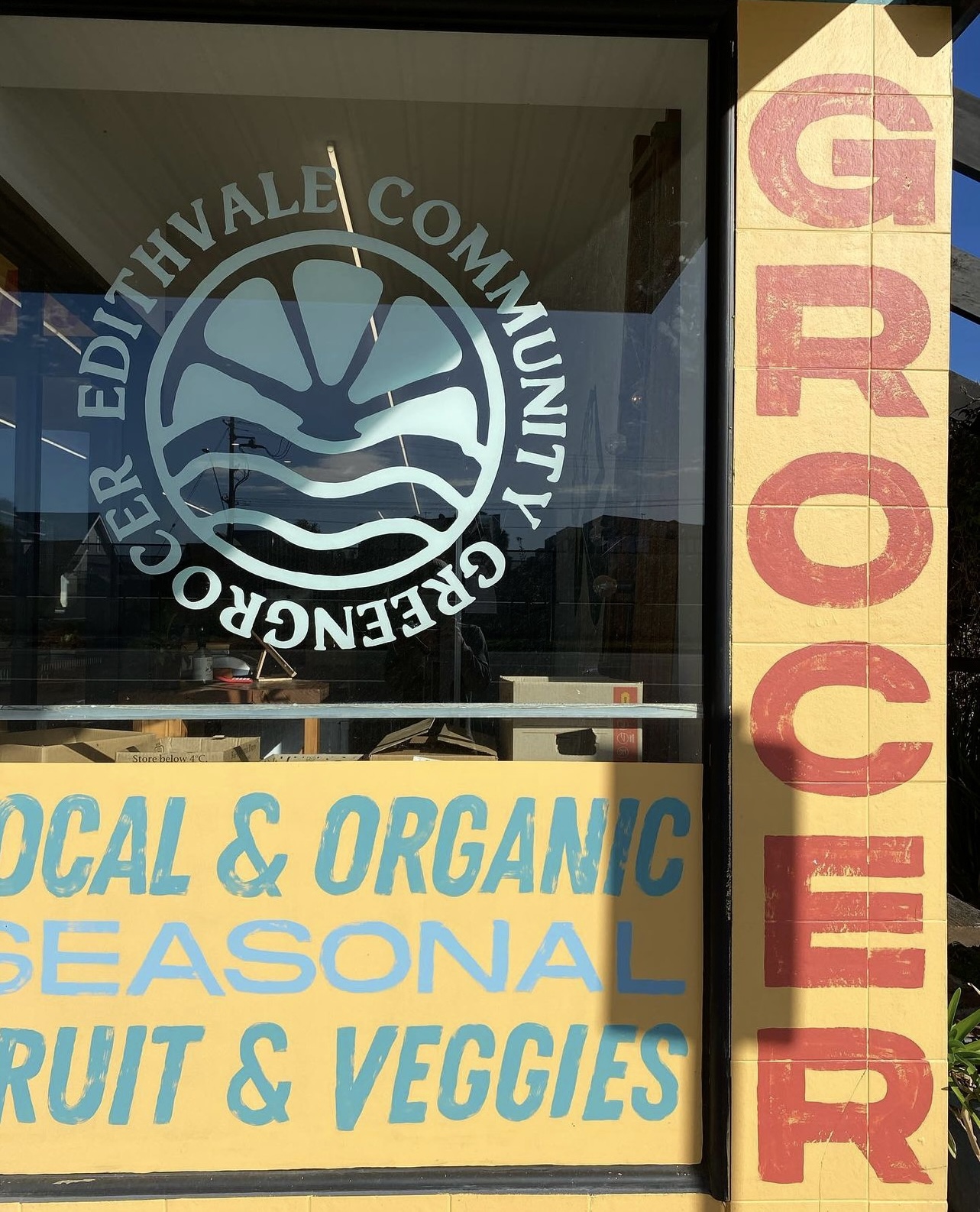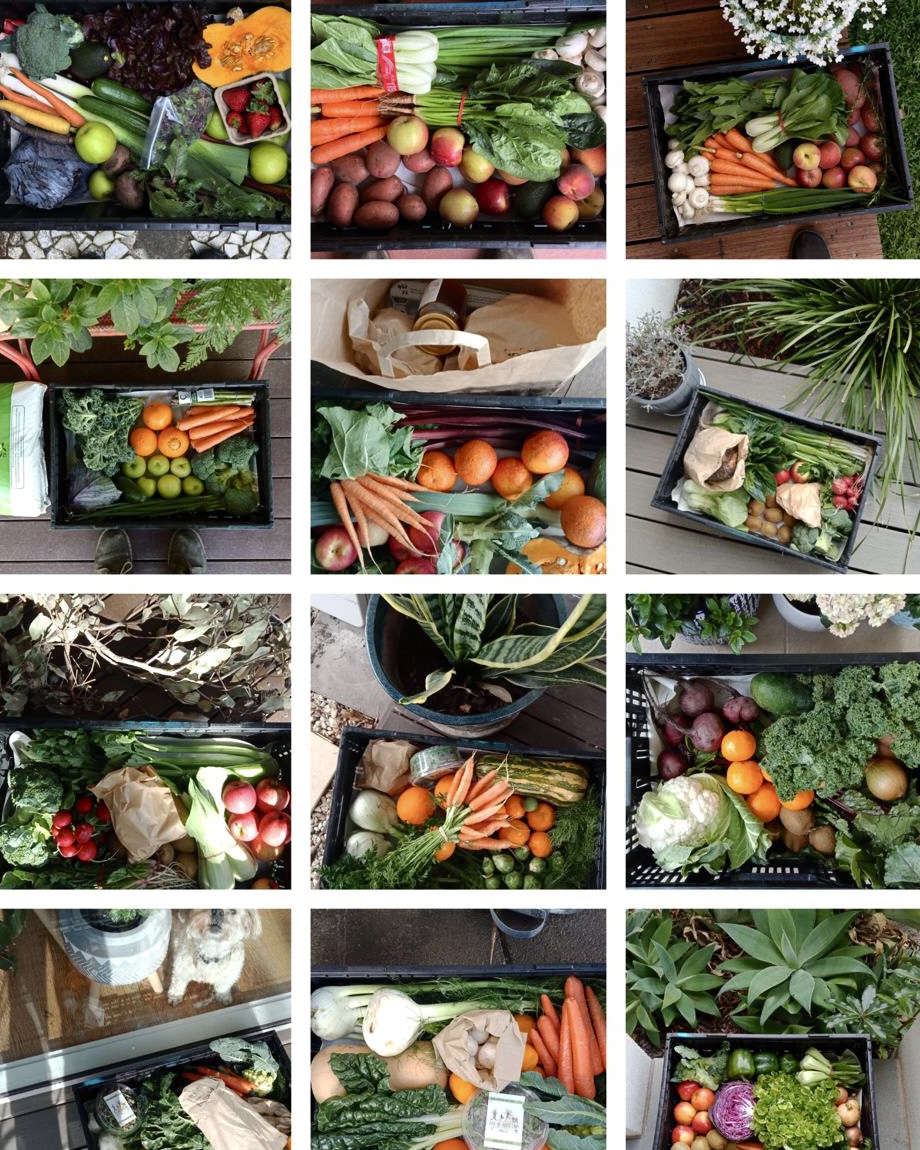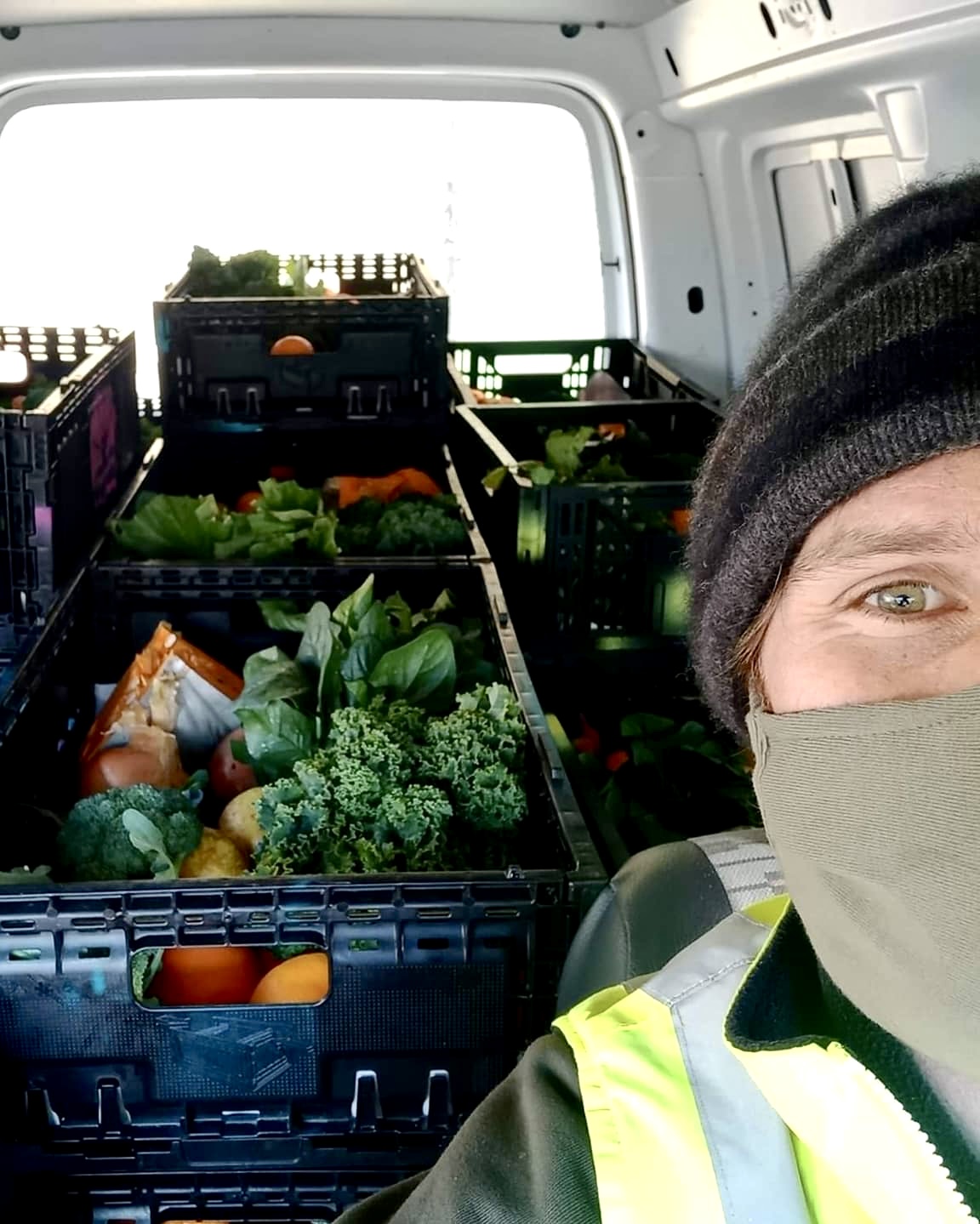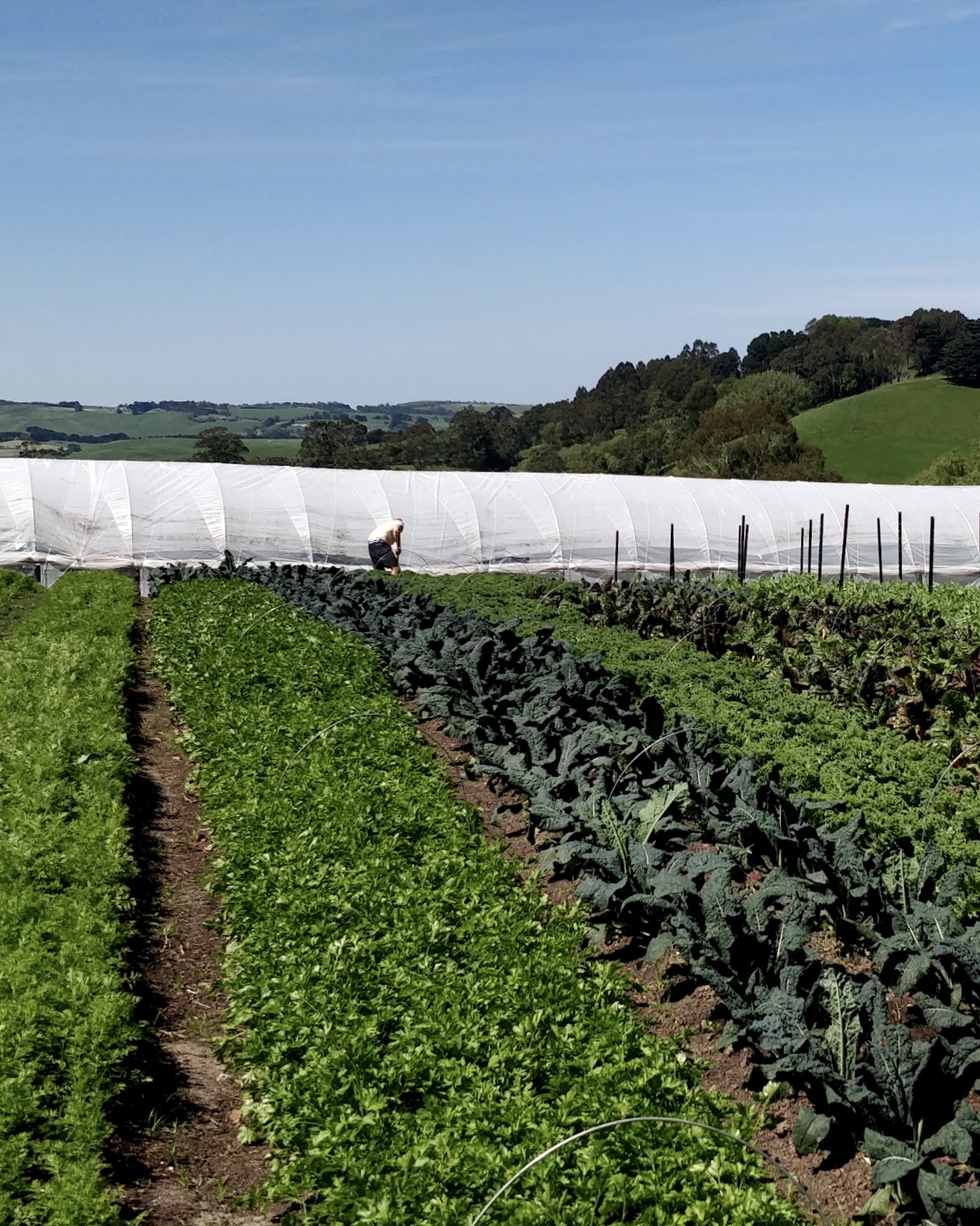Edigrocer – where are they now?
The key to running a sustainable, long-term community food enterprise is simplicity.
The Edithvale Community Greengrocer (Edigrocer) is an inspiration when considering what a community food enterprise can achieve. Since we last spoke to them in 2019, their customer base has doubled, and the company has grown to six team members.
We spoke to founding champions Jono Leschinski and Jessie Lopez about what other community food enterprises could do to replicate the success of Edigrocer.
Like many great businesses, the problem that Jono and Jessie were trying to address when they started Edigrocer was simple – Edithvale did not have access to fresh, locally-grown produce. As conscious eaters, they were ‘chasing farmers’ markets’ even though most farms were only 20km away.
That’s when they started Edigrocer.
This business model can work in your area.
Sprawling suburbs that push into surrounding farmland is one reason Edigrocer want their community to consider where they source their food. Another is their passion for supporting pathways for young farmers and community food enterprises. Every suburb deserves a greengrocer or equivalent, and there is room for hyper-local produce box schemes like Edigrocer.
Here are some of the reasons behind the success of Edigrocer:
A community focus
Edigrocer operates on a hyper-local scale.
- They pick up fruit and vegetables from farms within a 50 KM radius of Edithvale
- They deliver to customers who are within a 5 KM radius of their shop
They want to bring their local community together on a seasonal eating journey. Many families have been with them since the start – even their current team members started as customers!
A simple business model
Edigrocer operates on a simple business model that “…could operate with just a van – in fact, that’s what we did for the first year”, says Jono.
They pick up fresh fruit and vegetables from nearby organic producers in the Mornington Peninsula and Koo Wee Rup, pack them into boxes, and deliver them to customers within the delivery radius.
Customers can choose from three box sizes:
- Small – $35
- Medium – $50
- Large – $65
These boxes are delivered for free to customers within their delivery area (5KM) three days per week. Customers all receive the same produce each week – making packing and logistics much easier to manage.
Jessie says, “standardisation of produce is important – not just to make space in the shop but also in your brain. It makes everything smoother, from packing to forecasting and delivery.”
Edigrocer is a big advocate for the “lean” approach to business.
A streamlined operations
Streamlining operations has always been a priority for Edigrocer over its 6-years of operation. They have fine-tuned their systems to collect the produce, pack and deliver to customers all on the same day. As a result, produce freshness can be maximised and excess reduced.
They achieve this by:
Two vans are in operation. One van will pick up produce from the Mornington Peninsula – the other will pick up produce from Koo Wee Rup. These pickups start at 8 AM – the vans are usually back, ready for packing to begin by 11 AM.
Splitting up deliveries. The team starts packing and usually has the first 25 boxes out the door by lunchtime. Delivery routes are calculated with the logistics software Routific – taking into account school zones and other obstacles to maximise efficiency. Drivers also rotate shifts, keeping each delivery to ~90 minutes – minimising stress and fatigue for the team.
Creating a standardised process – The team has a standardised process that they follow, making it easy to track the progress of packing and deliveries.
Texts – The team prefer to communicate with customers and farmers by SMS, which they say has the highest response rate.
Fixing problems on the fly – The team usually see each farmer every week and has a pretty good idea of how their crops will turn out. When they encounter supply challenges, they have good knowledge of other producers in the area and can get in touch with them to help fill any gaps. Operating two routes means that they also have optional backup farms.
Free delivery as a standard – Box delivery is free to their customers – this has happened due to close planning around operational costs. They only deliver within a small local radius and to certain suburbs or streets on specific days. Jessie has worked out that delivery costs are less than what it would cost to staff the store to allow for pickups.
An uncomplicated packing process
Edigrocer has a simple packing process. They operate from a space about the size of a double garage with two aisles and a punneting station.
Equipment
- A whiteboard to track orders
- Colour-coded returnable crates for the three box sizes
- Three standard box sizes, collapsable and stackable crates
- Racks that fit the boxes
- Trolleys and dollies to minimise lifting
Packing and operations are simple through a standardised set-up, and produce boxes are returned to the farmer on the next collection day – minimising waste. Customers also leave their empty boxes out for collection.
When a produce delivery arrives at Edigrocer, they set up the produce on the packing aisles, packing one box to completion – taking about four minutes per box. The first delivery run is packed (~ 25 boxes) and checked before loading them into the van.
One team member does the delivery while the others continue packing the next delivery (~25 boxes). In this manner, the following delivery is ready when the first driver returns.
Drivers rotate to minimise stress and keep things fun.
“Every worker knows how to do every job, from visiting farms to packing and deliveries, invoicing and customer service.”
Learn more about Edigrocer on their Instagram or website.
If you are interested in starting a similar business in your area, we recommend watching our webinar ‘Get Your Food Moving’ – featuring Jono and Jessie from Edigrocer, Lloyd Harrington from Baw Baw Food Hub and former Open Food Network team member, Amelia Bright.
We also encourage you to head to the Community Food Enterprises Australia Facebook group, where you can connect with other values-aligned food enterprises like Edigrocer.




